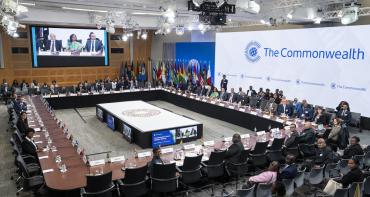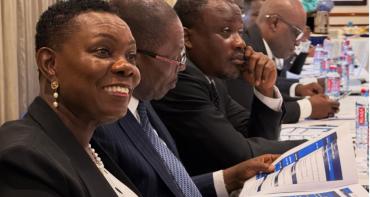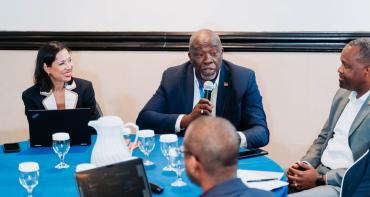Pacific small island state seeks exclusive access to potentially lucrative seabed resources over an area of 416,000 square kilometres
The Commonwealth assisted the Cook Islands as it appeared before the United Nations from 23 to 27 April to seek approval of its submission for additional areas of resource-rich seabed.
The Cook Islands became the first small island Pacific country to make a continental shelf submission to the UN, when it lodged its submission on 16 April 2009.
In the submission, the Cook Islands seeks to secure access to 416,000 square kilometres of additional seabed in the region of the Manihiki Plateau, making it one of the single largest areas of extended continental shelf in the world to be examined to date.
“This is a critical stage for the Cook Islands as it seeks to confirm its rights to additional areas of seabed, so that present and future generations can benefit from the management of resources such as oil, gas, minerals and genetic resources that may be found in these areas,” said Joshua Brien, Legal Adviser at the Commonwealth Secretariat.
|
What is a continental shelf? The continental shelf of a coastal state comprises the seabed and subsoil of the submarine areas that extend beyond its territorial sea throughout the natural prolongation of its land territory to the outer edge of the continental margin, or to a distance of 200 nautical miles from the baselines from which the breadth of the territorial sea is measured where the outer edge of the continental margin does not extend up to that distance. (Source: Article 76, 1982 United Nations Convention on the Law of the Sea) |
The Secretariat provided legal and technical advice and assistance throughout the development of the submission in the form of in-house legal expertise and through the engagement of scientific experts to provide advice to government teams.
“The Cook Islands delivered an excellent series of presentations during the week and has impressed upon the commission the importance of the continental shelf process to their country and their people. We are confident of a successful outcome,” noted Mr Brien, who leads the maritime boundary programme.
He has been attached to the country delegation to the UN Commission on the Limits of the Continental Shelf and participated in the presentations in support of government officials with technical experts Dr Alain Murphy of Geolimits Consulting and independent consultant Scott Sweet.
The United Nations Convention on the Law of the Sea is a multilateral treaty that establishes a framework of rules and principles to govern all ocean space. The convention has been ratified by more than 159 countries, including some 47 Commonwealth member countries.



